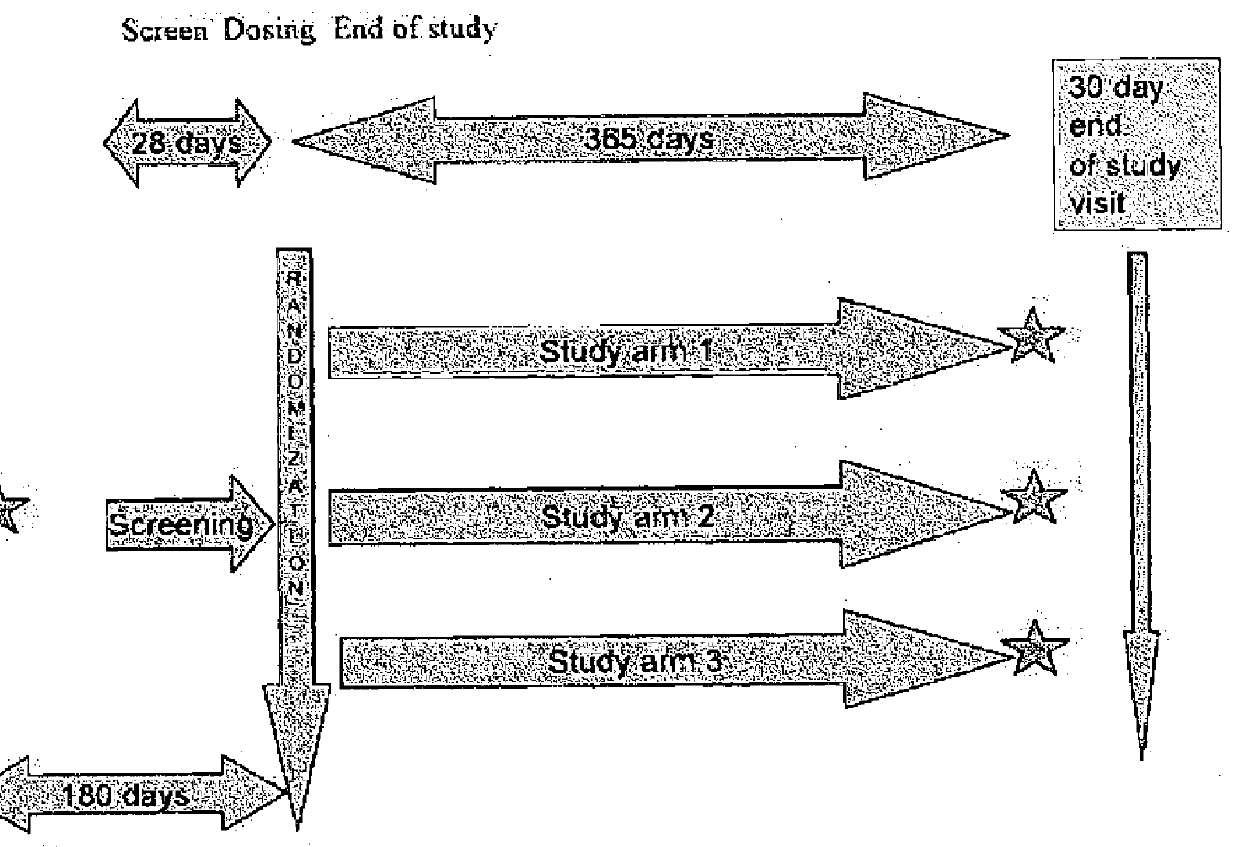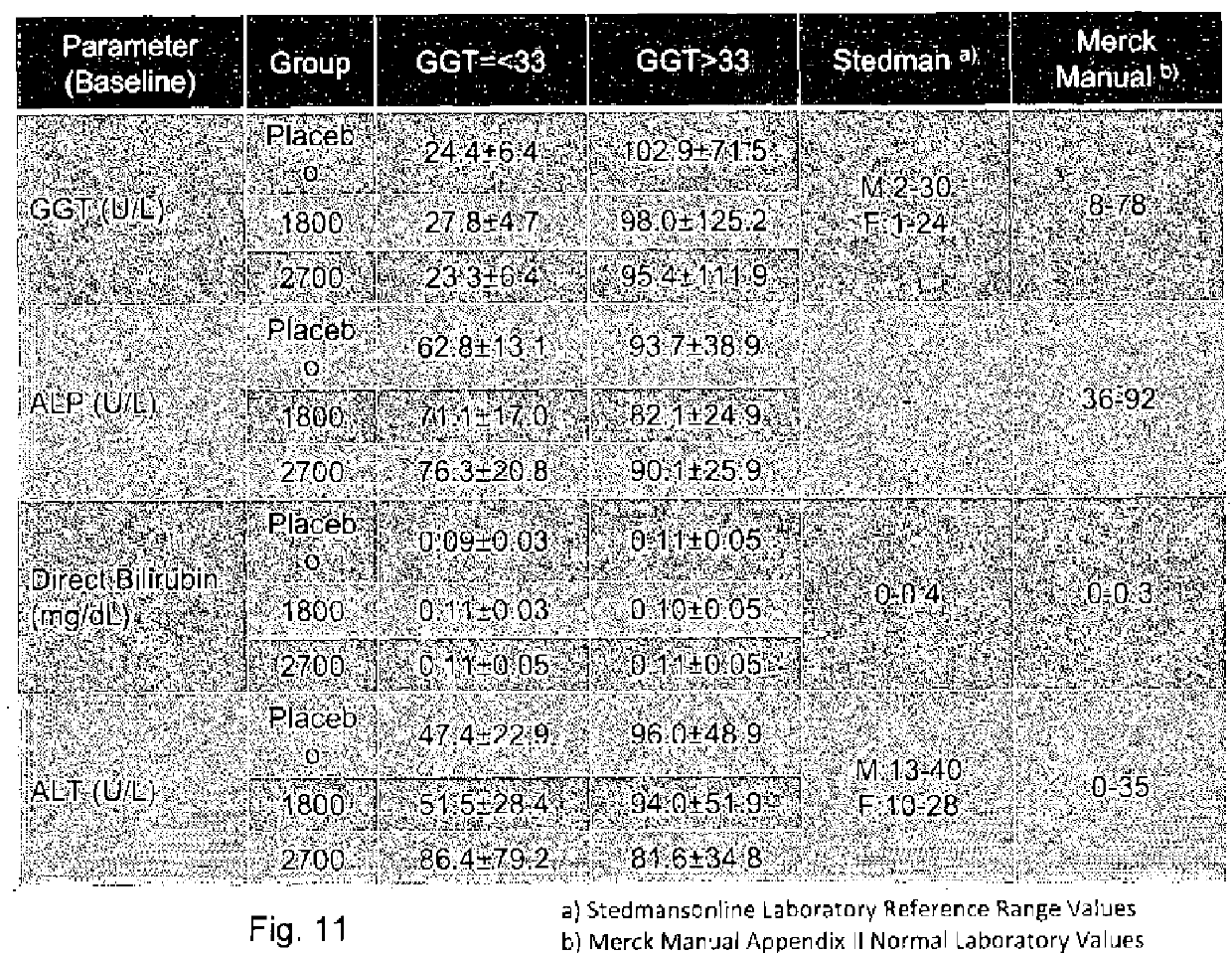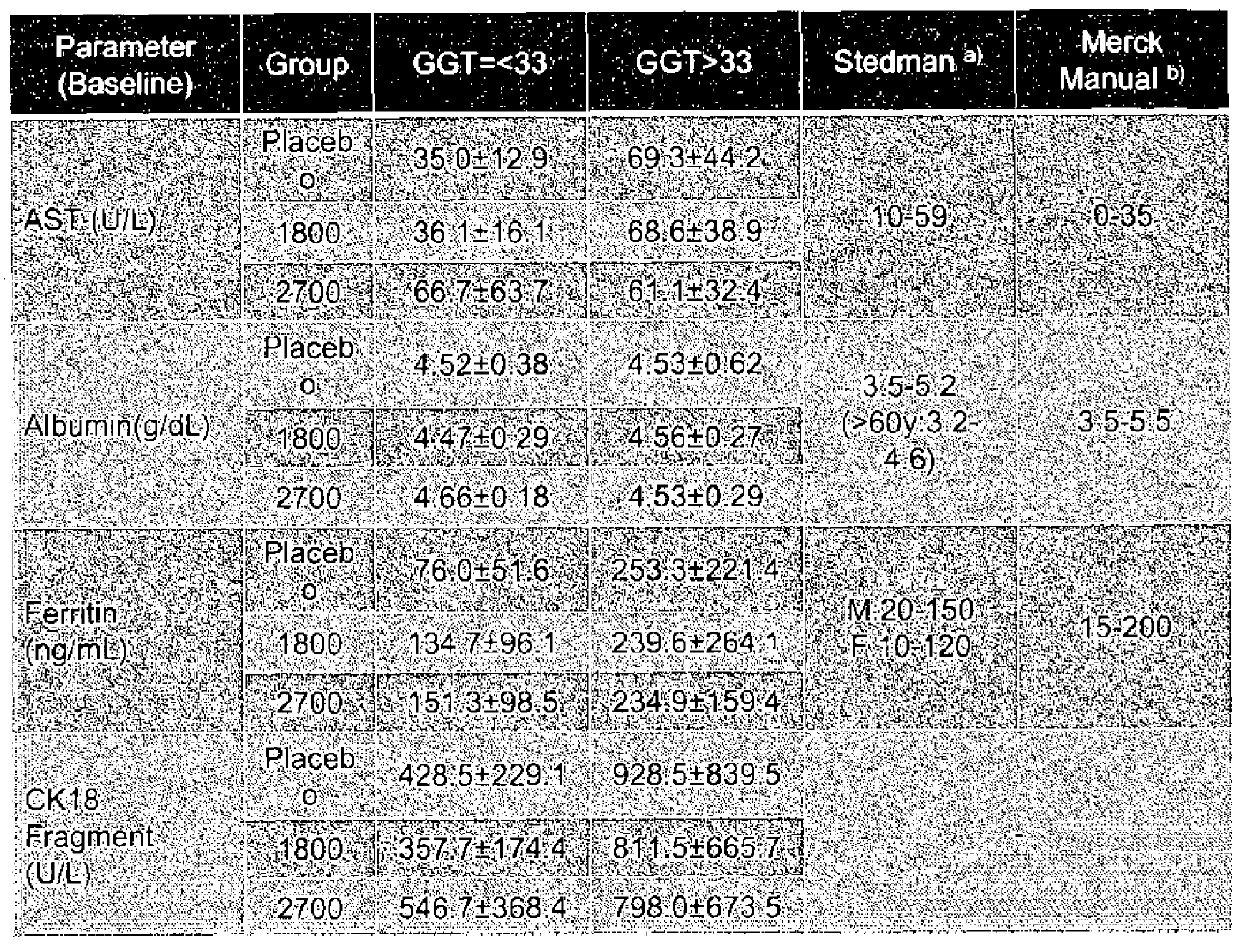Compositions and methods for treating non-alcoholic steatohepatitis
a technology of steatohepatitis and compositions, applied in drug compositions, biocides, metabolic disorders, etc., can solve the problems of liver disease complications, excessive alcohol consumption, liver disease complications, etc., and achieve the effect of improving the steatosis and lobular inflammation condition and not worsening the fibrosis stag
- Summary
- Abstract
- Description
- Claims
- Application Information
AI Technical Summary
Benefits of technology
Problems solved by technology
Method used
Image
Examples
example 1
Pre-Clinical Experience
[0297]In animal and in vitro model studies, EPA-E (ethyl all-cis-5,8,11,14,17-eicosapentaenoate) has been shown to lower lipids in rats, hamsters and rabbits; have anti-aggregation effects on platelets from rats, rabbits and humans; and to preserve the elasticity of arteries in rabbits. In other studies, polyunsaturated fatty acids (PUFAs) have been shown to ameliorate hepatic steatosis in ob / ob mice through down-regulation of hepatic nuclear sterol regulatory element binding protein-1c (SREBP-1c). In a similar manner, EPA-E following repeat oral administration at ≧0.1 mg / g suppressed fat accumulation in a mouse diet-induced hepatic steatosis model by suppressing hepatic SREBP-1c levels as well as monounsaturated fatty acid (MUFA) synthesis by stearoyl-Coenzyme A desaturase 1 (SCD1). In a galactosamine-induced steatohepatitis mouse model, EPA-E after oral administration at 1000 mg / kg retarded progression of steatohepatitis by suppressing triglyceride (TG) accu...
example 2
Clinical Trial Data
Study Design
[0311]This example provides the protocol used for an ongoing phase II clinical trial, double blind, placebo-controlled study to investigate the safety, efficacy, and pharmacokinetic profile of two doses of EPA-E in subjects with NASH. Up to 70 subjects were enrolled into each treatment arm, for a total of 210 subjects to be enrolled. Block randomization using an interactive voice response system (IVRS) was used to assign patients in a 1:1:1 ratio to two active doses and placebo. Patients were stratified at randomization by presence or absence of diabetes. Patients with diabetes comprised no more than 25% of the total number of patients enrolled. Subjects were treated with 600 mg EPA-E, 900 mg EPA-E or placebo three times a day for one year.[0312]Study arm 1: 600 mg EPA-E (3 capsules), TID[0313]Study arm 2: 900 mg EPA-E (3 capsules), TID[0314]Study arm 3: placebo (3 capsules), TID
[0315]Subjects were required to have a liver biopsy with proven NASH in th...
example 3
Self-Emulsifying Formulation
[0383]0.5 g of soybean lecithin, 1.0 g of polyoxyethylene (60) hydrogenated castor oil, 0.4 g of propylene glycol, and 3.1 g of EPA-E were weighed, and mixed while heating to a temperature of about 70° C. to prepare a self-emulsifying composition. After substituting with nitrogen, the self-emulsifying composition was hermetically sealed and stored at room temperature until the evaluation. Formulation of the self-emulsifying composition is shown below:
FormulationIngredients(% by weight)EPA-E62.0Soybean lecithin10.0Polyoxyethylene (60)20.0hydrogenated castor oilPropylene glycol8.0Total100.0
PUM
| Property | Measurement | Unit |
|---|---|---|
| concentration | aaaaa | aaaaa |
| concentration | aaaaa | aaaaa |
| temperature | aaaaa | aaaaa |
Abstract
Description
Claims
Application Information
 Login to View More
Login to View More - R&D
- Intellectual Property
- Life Sciences
- Materials
- Tech Scout
- Unparalleled Data Quality
- Higher Quality Content
- 60% Fewer Hallucinations
Browse by: Latest US Patents, China's latest patents, Technical Efficacy Thesaurus, Application Domain, Technology Topic, Popular Technical Reports.
© 2025 PatSnap. All rights reserved.Legal|Privacy policy|Modern Slavery Act Transparency Statement|Sitemap|About US| Contact US: help@patsnap.com



